Long before Eurovision, Ukraine dreamed of Liverpool
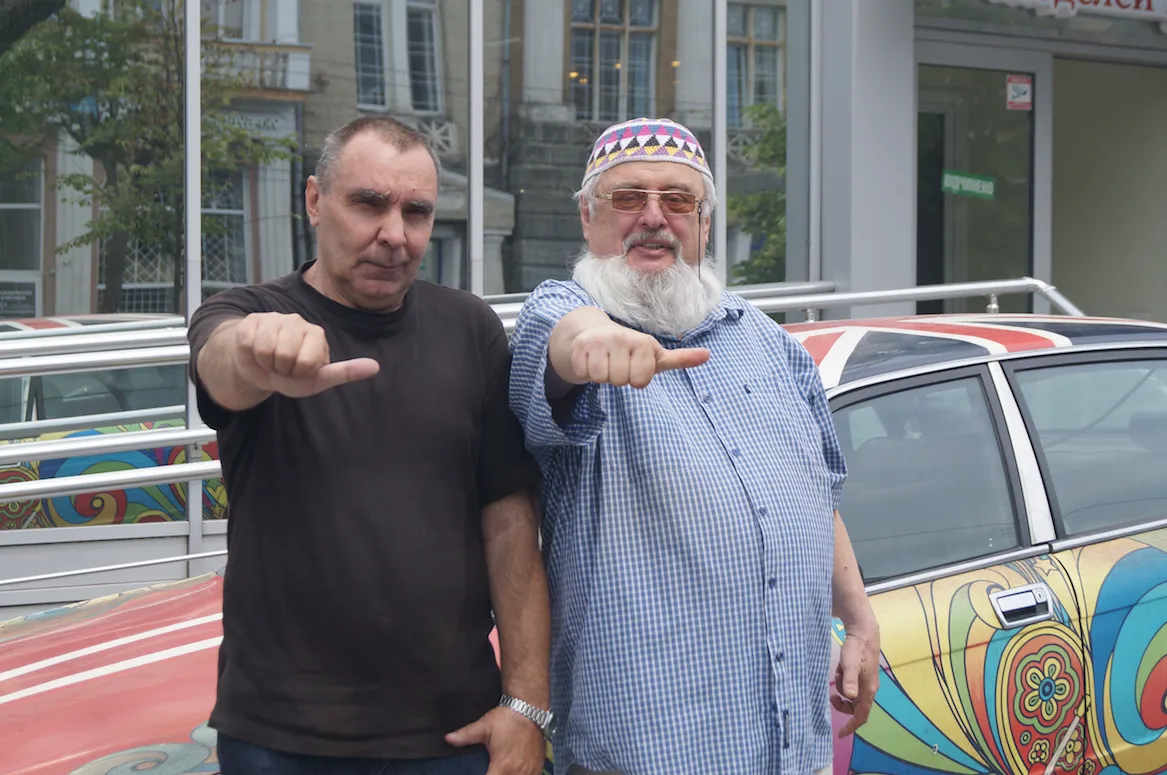
Forbidden vinyl, Vinnytsia and Sergeant Pepper
Dima’s eyes go big when I say where I’m from. “Liverpool, The Beatles!” the twenty-something exclaims as he whips out his phone. If you’re a Scouser who’s ever done much travelling, this reaction will sound all too familiar — but it was the first time my mention of Liverpool had elicited much excitement in Ukraine. Sat around a table in this cobbled Kyiv courtyard, not even the air alarms sounding as we talked provoked much more than a cursory glance in their direction.
I’d befriended Dima at my hostel as the midnight curfew started. Still clutching his phone, he scoured Google Maps until he found the right spot: “Beatles Square”, he said, proffering the phone. On the screen, I could see statues of the Fab Four and their yellow submarine in Vinnytsia, which the group had visited for training a previous weekend. In the very centre of this city of 370,000 people, part way between Kyiv and Moldova, is a plaza called Ploshcha Liverpul — Liverpool Square.
Liverpool is famous, there’s no denying that. It’s home to two football clubs with international followings — I met a man in Kyiv’s tower block suburb of Brovary with a Liverpool FC scarf hanging in the entrance to his flat — and nearly 60 years since their heyday, The Beatles remain the highest-selling artists of all time. But why did this Ukrainian city pick my home as namesake for a central square filled with Beatles paraphernalia? I boarded a sleeper train for the 260km journey southwest of Kyiv to find out.
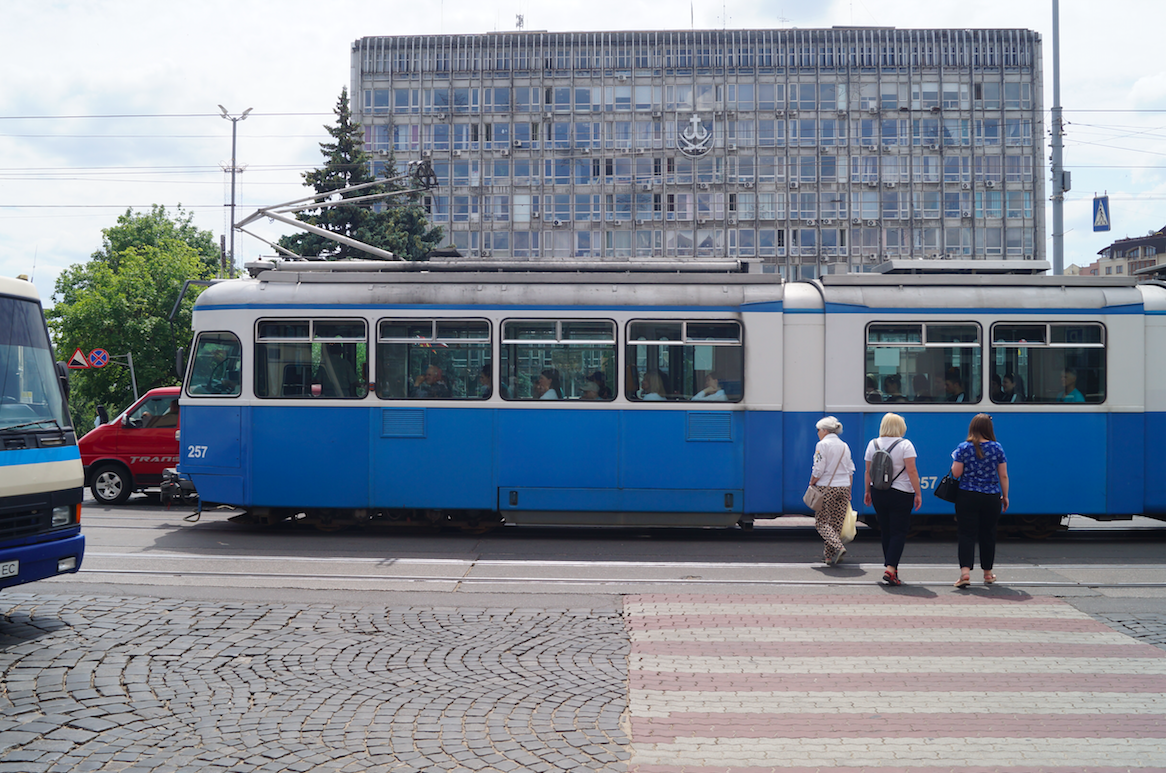
Days before setting off, I did some digging. As I learned from a local news site, Liverpool Square was the name given to a revamped plaza opened in 2017 by Mayor of Vinnytsia, Serhii Morhunov, as part of plans to redevelop the city’s squares and trams. He announced the plans in 2014 in the aftermath of Ukraine’s Revolution of Dignity, the culmination of the months-long Maidan Uprising.
Like people across the country, many of Vinnytsia’s youth took to the streets in a series of protests that ultimately ousted the Russia-sympathising President Viktor Yanukovych. Vinnytsia’s protests peaked at roughly 5,000 in December and January. One night, a thousand demonstrators blocked traffic outside the regional government building, carried a ‘Democracy Coffin’ as a gift to President Yanukovych, and chanted "Gang away" and "Vinnytsia stand up".
Prior to his overthrow, Yanukovych had backed out of a trade deal with the European Union and opted instead for one with Russia. Ukraine’s next door neighbour has long sought to control the smaller country’s affairs — subsuming it in the Russian Empire, dominating it in the Soviet Union, and continuing to influence its economy, policy and culture through propaganda, money and now war since the communist states fell apart and Ukraine gained independence in 1991.
As Yanukovych was forced from office, Russian forces invaded and annexed Crimea on Ukraine’s Black Sea coast, followed weeks later by the invasion of the Donbas to the east. But people in Ukraine, particularly the young and in the west, were looking in another direction to find the future they desired. That June, the then-acting Mayor Morhunov said: “Vinnytsia is developing as a promising, European city, which is impossible without the involvement of the city's youth community in this process.”
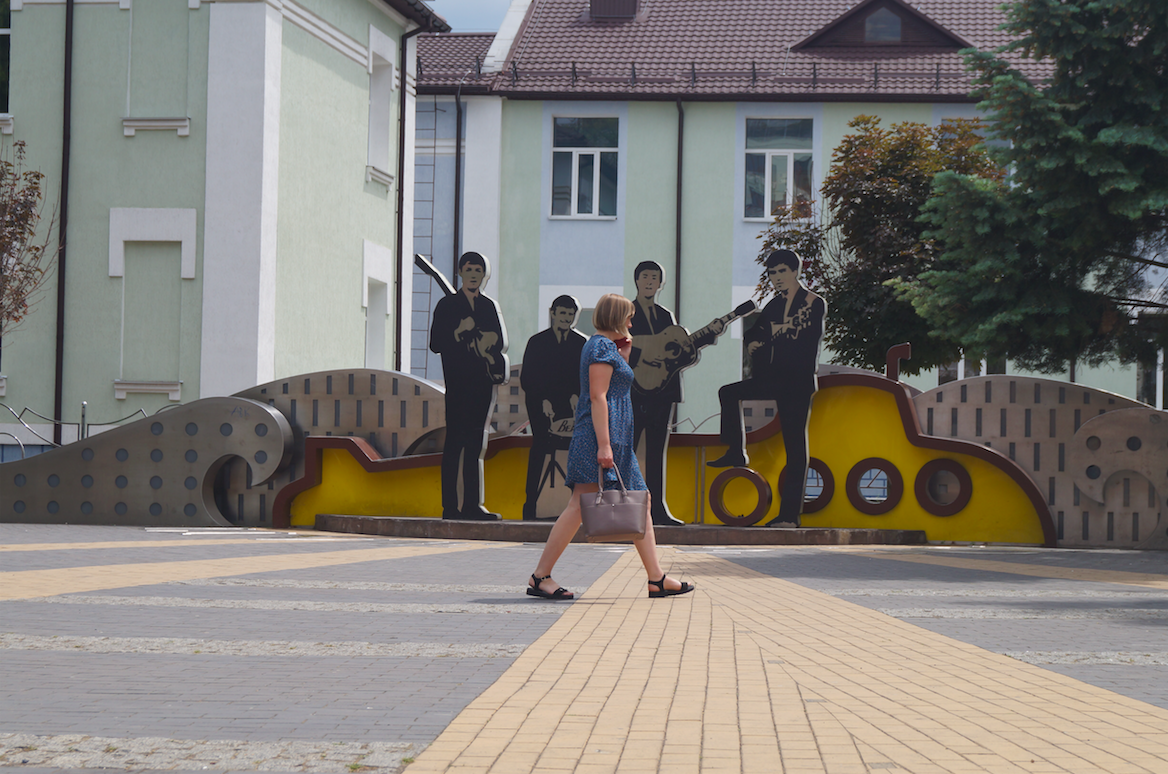
It seems like a relatively clear-cut origin story, even if it doesn’t answer the question of why Liverpool, why The Beatles? Little do I know that I’ll soon find a story far more interesting and specific than a post-Maidan realignment to the West.
Bouncing on a burgundy leather bench, my train rumbles through the Ukrainian countryside, past pink bungalows peeling paint, and barns. We pass a man, daughter in lap, on his motorbike riding along a tree-lined dirt track leading to a row of single-storey sheds, mostly with shutters down over the shops just before 7pm. A white-haired woman in a blue and white dress sprinkles seeds from a paper bag into the upturned soil of a field. The odour of manure seeps in through the window, cracked by my cabin mate for a much-needed reprieve from a thick 21 degrees. Just under two hours in, phones wail one by one as the latest air alarm arrives through patchy internet.
“Proceed to the nearest shelter. Don’t be careless. Overconfidence is your weakness”, our phones declare as sirens echo from each cabin on the carriage. We check our phones, just to see where’s under threat from Russian drones and missiles — all regions but one — before placing them face down on the table. There’s been at least one nearly every day since the start of May.
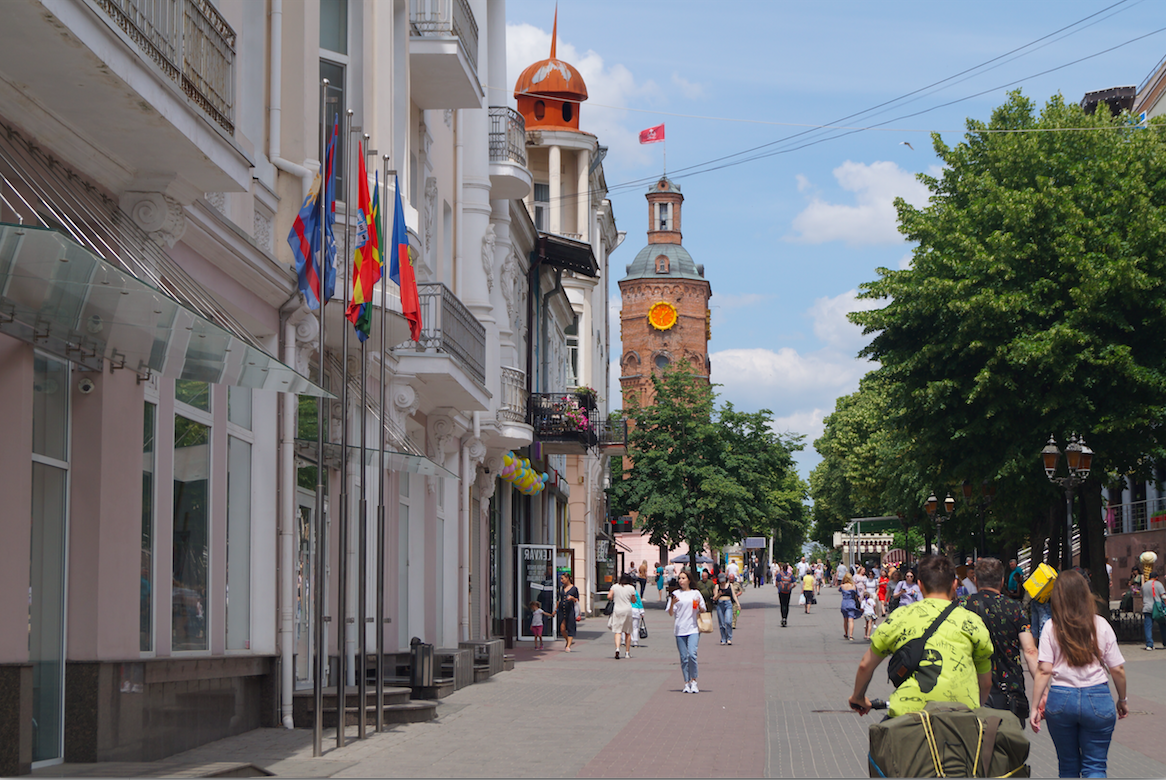
Even writing this back in Kyiv, I’m sitting beneath the thunder of Ukrainian air defences that shoot most of the Russian forces down before they land. It’s mostly teens with white graduation sashes hooped around their torso taking cover in the closest metro station, their cheers roaring up the escalator as the alert ends and they flood back through the gate opened to let them down to safety. But there’s nowhere to hide on a train, and kids’ squeals and laughter still rattle through the carriage.
An hour later we pull into Vinnytsia, disembarking on a dark platform where a man in khaki reunites with his family — six of them, a man, woman and kids hoisting his bags on their shoulders. Outside there are rows of parked cars and a blue bus waiting for passengers, its antlers reaching up to overhead wires. It’s no Liverpool on a Thursday night, full of students and stag dos dipping in and out of bars, clubs and takeaways. Instead, it’s soundtracked by a dog barking in the distance along the dusty multi-lane road leading to the city centre, and would be mostly quiet, were it not for the kids running between lamp posts, cars racing down the street, and people out for an evening stroll beside the river or a journey home before curfew starts at midnight.
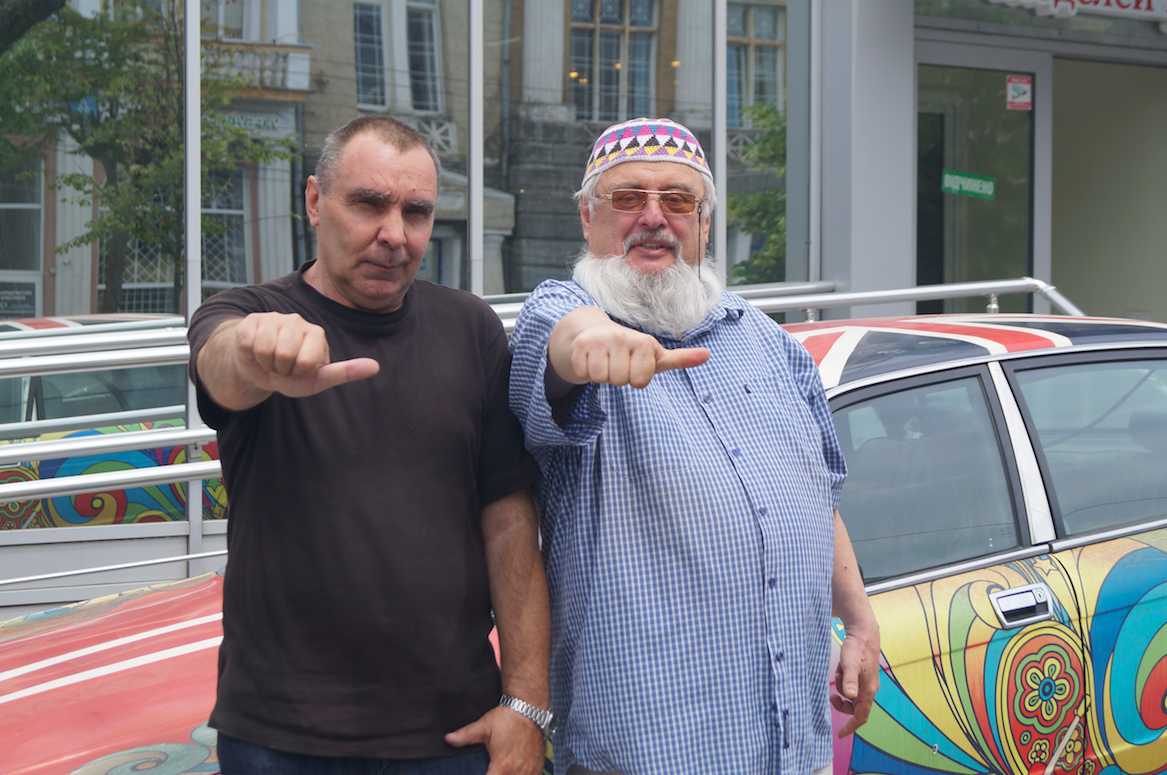
“Vinnytsia was more green when I was a child”, Oleksandr Shemet, a 64-year-old with a white wispy beard, tells me. The portrait of Bolshevik leader Vladimir Lenin above the station entrance has been replaced by a clock and Ukraine’s national symbol, the yellow tryzub or trident. “Now we’ve got a prospekt without trees. They cut them down when the road was widened.” A chance encounter with the chalice collector in the Miniature Car Museum, the largest collection in Eastern Europe, leads to an answer as to how Liverpool Square got its name.
“It’s a folk name”, Oleksandr says, standing next to a brightly painted car with ‘The Beatles’ in the front window and ‘You Never Walk Alone’ daubed across the back. He tells me he’s known it by this name since 1964. There was a café on the square that was also a music studio, he explains. It was prohibited to listen to music in this way, it was impossible to buy vinyl. At this juncture, I should note that vinyl itself wasn’t illegal — but genres and artists from the West were, and vinyl wasn’t widely available, so presumably the material carried an aura of Western decadence with it. Oleksandr tells me that people who went into sport and travelled abroad, bought vinyl and brought them here. “They could listen to this music in the basement, they bought it and they made copies of it. It was an illegal business [the business of distributing banned Western music]. From that time, it was where young people would hang out and discuss a lot. So that’s why it got its unofficial name, Liverpool Square — The Beatles were widely sold.”
The Beatles were one of the few Western bands popular in the Soviet Union. As Mikhail Safonov from the Institute of Russian History explained in the Guardian: “Beatlemania washed away the foundations of Soviet society.” The same article cites a rocker who insists that “The Beatles brought us the idea of democracy. For many of us, it was the first hole in the iron curtain.” They inspired art and dissent across the communist state, including in the nearby city of Mohyliv-Podil's'kyi, on the border between Vinnytsia Oblast and Moldova.
“Young people who lived in Mohyliv-Podil's'kyi decided to give a present to the city”, Oleksandr explains of the events in 1981, the year after John Lennon’s murder. He says there were monuments to Lenin in all the small towns, and then these students decided to order a monument of John Lennon, because they were “crazy about him.” A local architect made it, he continues, and in the morning you could see it on the main square, one for John Lennon and another for Lenin. “They were like friends.” The students sung and played guitar, and it drove the representatives of the city council crazy. They wanted to demolish the monument, he says. “The director of the local museum decided to save it, so he took it to the museum, which was in a church, and he hid it there. It was kept there for 10 years. In 1991 [when the Soviet Union collapsed], it was decided to remove it from the museum. Right now when you go to Mohyliv-Podil's'kyi, you can still see this monument.”
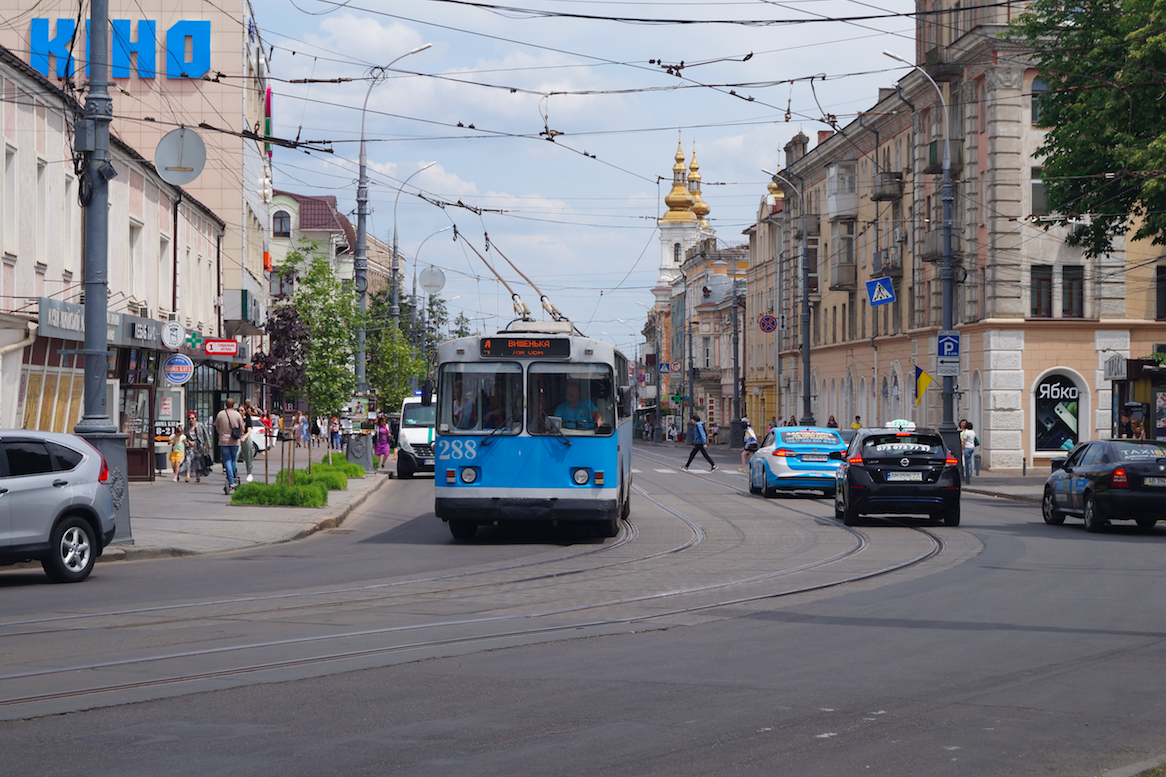
The Beatles’ legacy in this region has now been immortalised in Liverpool Square, a name made official by the decision of local citizens six years ago. Transformed from an overgrown, dishevelled place 10 years ago, it’s now well used by leisure lovers: people reading books, escaping the sun beneath trees or spilling out from the neighbouring McDonald’s.
Black and white cutouts of John, Paul, George and Ringo perch atop a yellow submarine. Pillars pipe out Beatles tunes at intervals throughout the day. A red telephone box stands to the side next to a red ice cream van. Four stripes stretch across the ground, pointing towards Hotel France across the street, European Square around the corner, and Independence Square where the European Union flag flies alongside the flags of Vinnytsia, Ukraine and an array of European countries outside the city council building down the road.
“One of the characteristics of Ukrainians is our limitless love of freedom”, Alisa Myslovska tells me. She’s a communications manager at Vinnytsia City Council’s tourism and marketing department, and she explains that this is why it’s European Square and Independence Square. “We wanted to fight against the Yanukovych regime and we wanted to have democratic values.” She explains that they’re a multicultural city, and step by step, they have got infrastructure to show they support democratic values. “Abroad, some people make mistakes, they think that Russia and Ukraine are the same country and actually it is really offensive for us because we are different nations, different countries.”
It’s hard to imagine now given how peaceful and removed from war Vinnytsia seems compared with the routine bombardment of Kyiv, and the full-scale conflict further to the east. But less than a year ago, 27 people died here when Russian cruise missiles hit the city. Buses and trams flow steadily down Soborna (in English, “unity”) the city’s main thoroughfare lined with clothing shops, cafés and restaurants in pastel-coloured, two storey buildings. People are trying their best to continue life as normal and prepare for a future after the war, a future that may include a museum of sound playing Beatles songs through the windows opposite Liverpool Square.
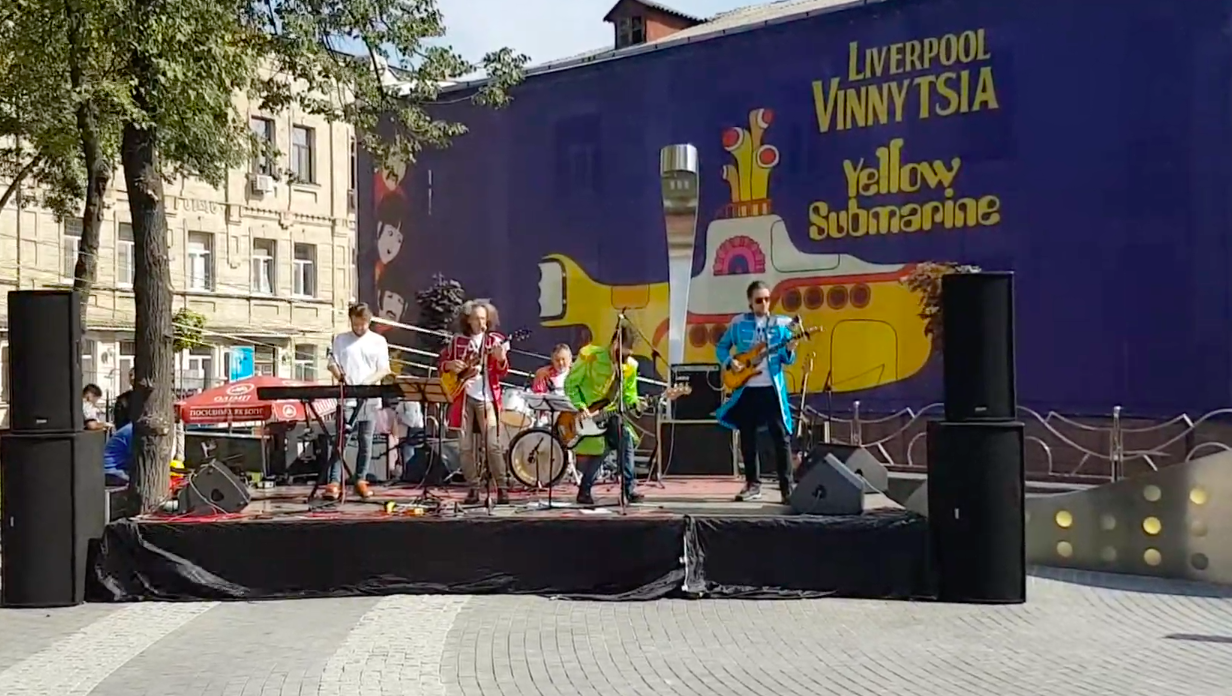
Vinnytsia was gearing up to open a new tourism hub to welcome visitors from across Ukraine and abroad when Russia invaded in February last year. Housed in a former government building burnt down by the Nazis at the end of their occupation, the tourism team are keen to show what Vinnytsia, often ranked the most comfortable Ukrainian city to live in, has to offer. But instead of tourists they welcomed refugees stopping off at this key post on the route out of Ukraine as they fled Russian forces, their destruction and torture, in the east. It’s impossible to know how many arrived in just a matter of days and weeks last year because many moved further west after only a night or two.
Echoing Liverpool’s own history as a city of sanctuary and solidarity, Vinnytsia is now home to 300 businesses that have relocated from other parts of the country. Among them is Perfetto, a dessert shop from Kherson serving a signature walnut and apricot cake in a gleaming white café, a far cry from the murky floodwaters submerging its home city after Russia blew up the Nova Kakhovka dam last week. “We’re really gracious for the support we get from countries like the US and UK”, Alisa said. The tourism hub has a duck doll dressed up as Boris Johnson who, despite his disgrace back home, is still admired for his support for Ukraine. “It’s impossible to struggle without these weapons, even when you inspire us to struggle to the end.”

Comments
Latest
A ‘stitch up’? How Wirral council bungled Big Heritage
Merseyside’s buses are coming back into public hands. Why not trains too?
From Jimmy McGovern to Len McCluskey: The household names rallying behind Writing On The Wall’s employees
The lost department stores of Liverpool
Long before Eurovision, Ukraine dreamed of Liverpool
Forbidden vinyl, Vinnytsia and Sergeant Pepper